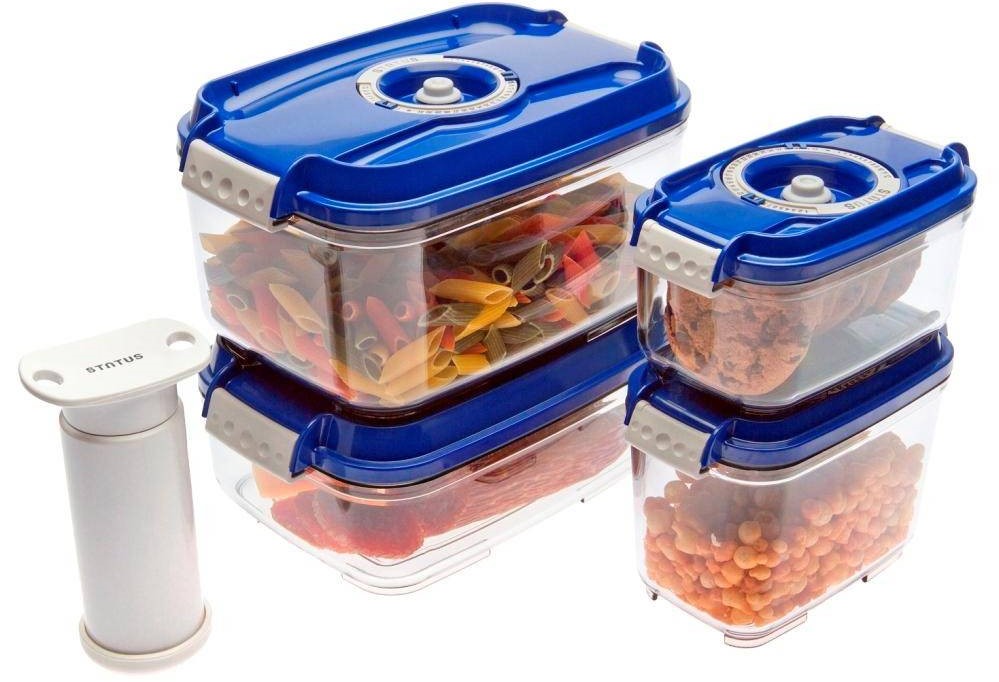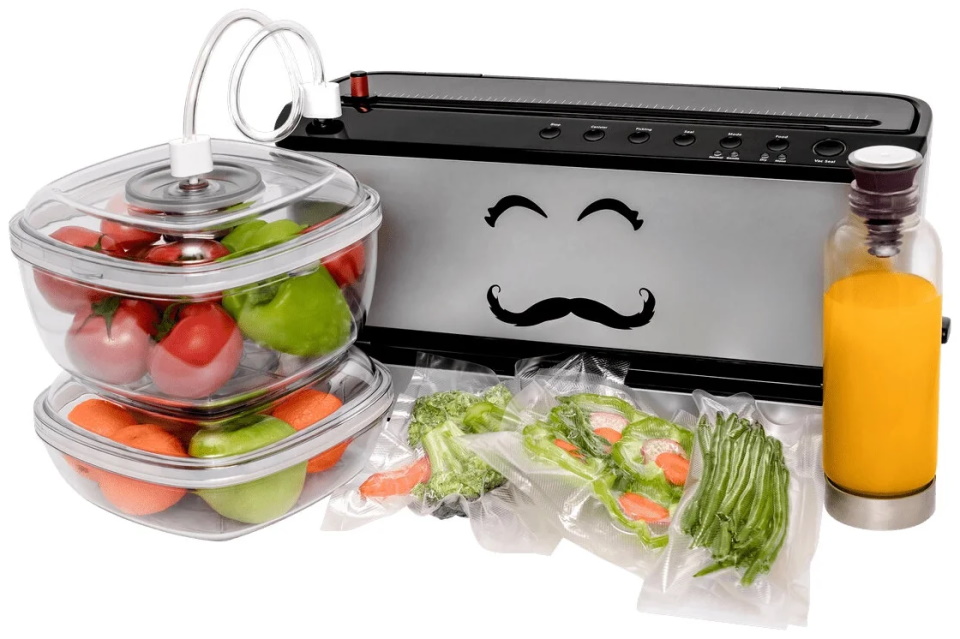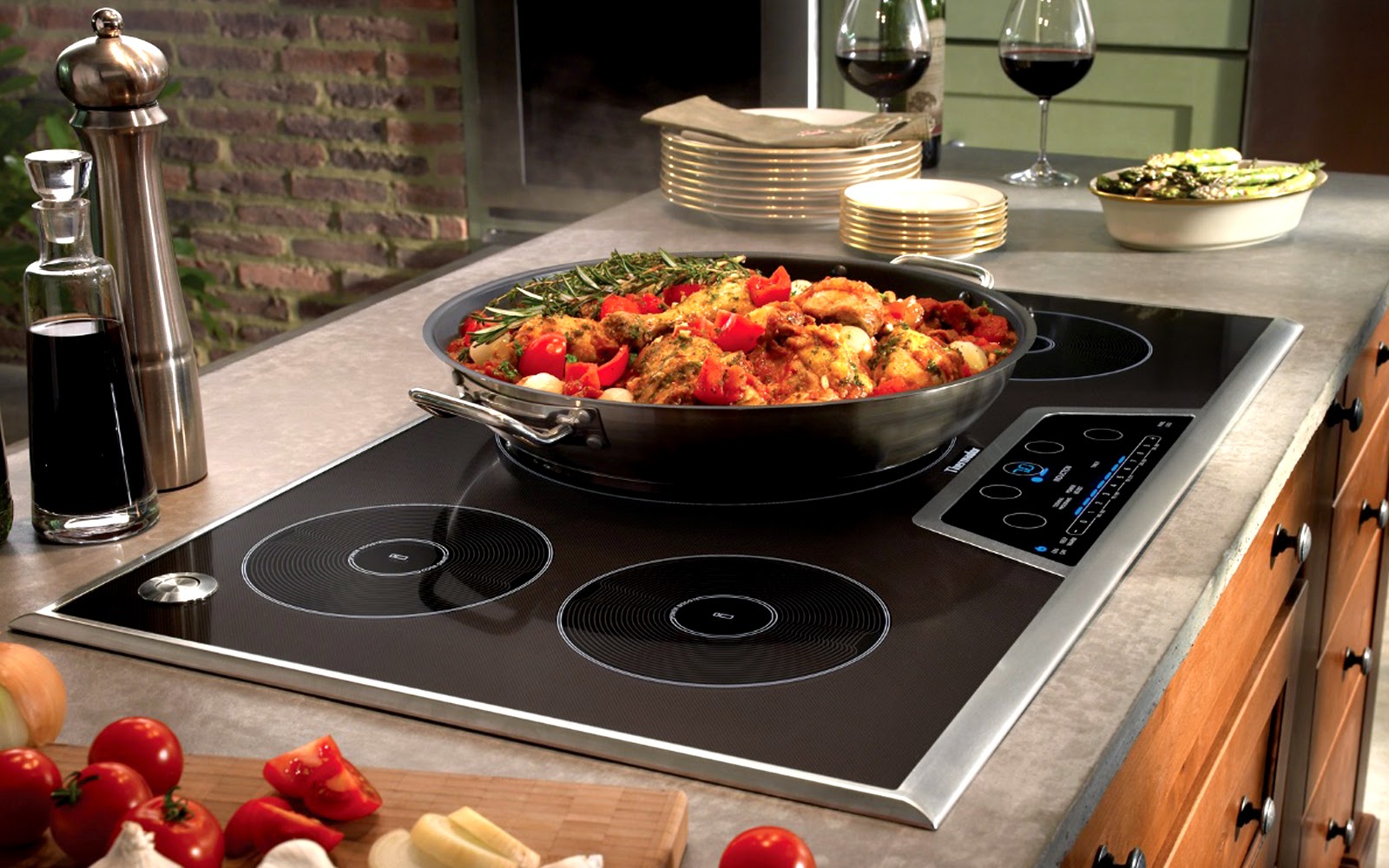Ranking of the best hotel door locks for 2025
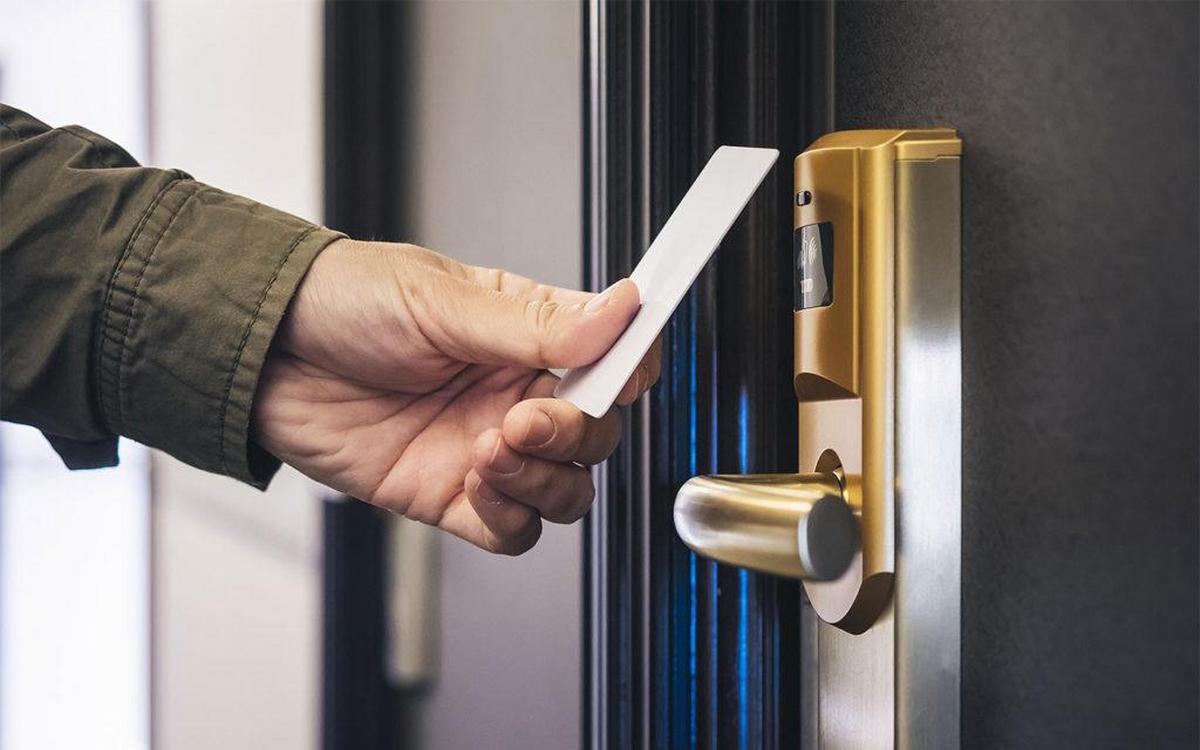
Modern locks in the hotel business are not only an element of the security system, but also the basis for the normal management of the provision of hotel services. At the moment, hotel locks are designed to perform a wide range of functions, which became possible only with the advent of an electronic component in them. The use of electronic locks allows you to effectively solve the issues of access control to office premises and hotel rooms. A unified lock control system will allow you to set a list of access points for each specific user, as well as fix the time at which access can be provided.
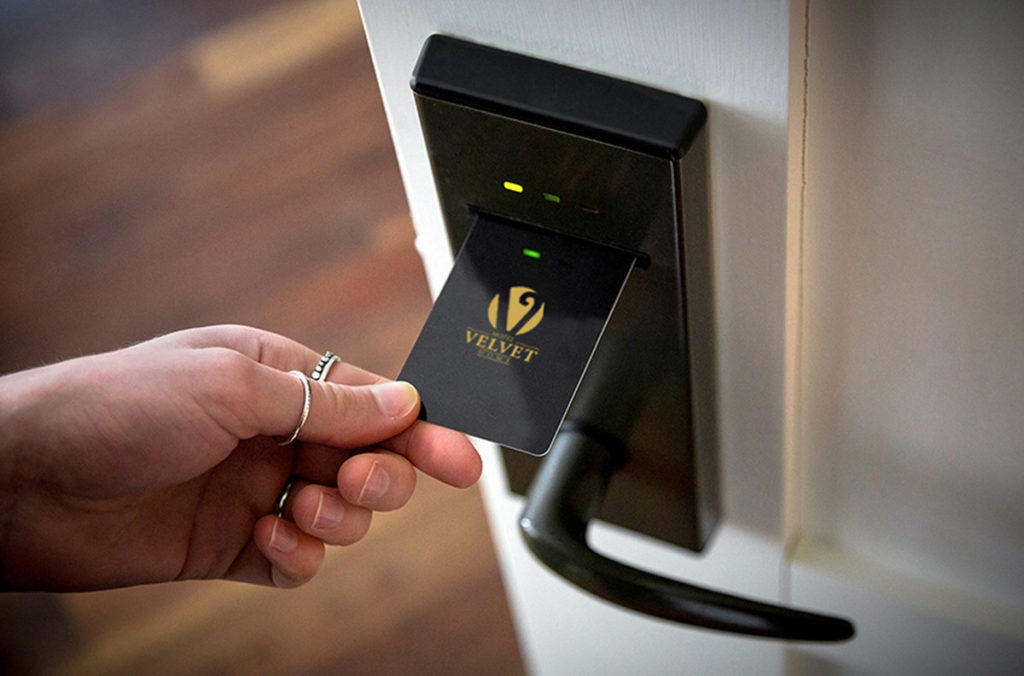
Content [Hide]
General information about electronic hotel locks
The traditional possibility, which is provided by locking technologies, is the integration of access card readers in such places of the hotel building as:
- Pools;
- gyms;
- Conference rooms;
- car parks;
- Elevators.
With the help of electronic cards, it is possible to qualitatively restrict the access of unauthorized personnel to the office premises of the hotel. Through the use of the card, a visit counter is also kept, which can be programmed for a certain number of visits to a certain area.
The lock mechanisms themselves have their own memory, which stores data on the opening time and which key was used to open it (most models are also able to remember the parameters of unsuccessful opening attempts, which is important for security). Locks of standard modifications are capable of storing from 100 to 300 such operations until they are overwritten. Expensive models can store data on 2000 events. Such information can then be used to resolve problematic situations, it can help to identify the guilty person or justify the innocent.Among other things, with the help of it it is possible to accurately track the actions of the hotel staff.
Thanks to the use of electronic locking devices, the level of security and reliability in the hotel increases. Compared to mechanical options, electronic devices have a more perfect degree of secrecy. It is impossible to open such a device with a master key, and copying the code part is very problematic. Before a new guest checks into the room, the lock must be reprogrammed, so none of the previous residents who had a key to the room will be able to get into it.
With the help of electronic locks, it is possible to reduce energy consumption, for which an energy-saving controller is installed in the room, which is a special device in the form of a pocket in which the guest places his key card when entering the room. Next, the electrical circuit is closed and all electrical appliances inside are supplied with power. And when the guest is not in the room and there is no card in the pocket, then the power supply to the devices is not supplied.
There are two types of devices described above - simple and advanced. The former simply act as an ordinary circuit breaker, while the latter are already able to read and accumulate information from the key card, obtain additional data about the presence of the guest in the room, supply electricity to certain electrical appliances (for example, depending on who entered the room: the guest or a hotel employee). Naturally, the latter type of device is more expensive.
At the same time, a plastic card with a logo or a photograph of the hotel drawn on it can remain with the guest even after departure, as a pleasant souvenir or promotional material.Therefore, most hoteliers, despite the fact that cards can be overwritten many times, prefer to give them to guests.
IMPORTANT! The latest innovation for key cards is the ability to use them for non-cash payments on the territory of the hotel, which is quite convenient and does not force the client to carry cash with them.
Basic tasks of the Access Control System (ACS) in modern hotels
These may include the following points:
- The procedure for entering a residential room should be intuitive to any client;
- A new key card is issued for each new guest;
- Locking the door when the guest leaves the room should be automatic;
- There should be a system for separating the order of access to the room for the guest and for the staff;
- Do not disturb mode must be implemented;
- In the "Anti-panic" mode, the output blocking should be turned off automatically;
- It is necessary to implement the possibility of settling a guest in a room even with an unreleased key;
- The presence of an audit system for all events in the memory of the locking device.
The access control system for modern hotels should consist of:
- Groups of electronic locking devices;
- Electronic readers, which are used to control various electronic devices;
- Key cards;
- Equipment that controls readers and locks (it may consist of one simple controller, or it may be implemented on the basis of a computer and a number of encoders - devices for issuing and rewriting electronic key cards. It is also possible to include mobile programmers in the system) ;
- Relevant software.
Networked and standalone systems
Locking devices can work independently and autonomously (off-line mode) or they can be networked (on-line mode). Most modern systems work in offline mode, because in this way the degree of security increases, because each lock works independently, is not connected to the other, which will prevent the possibility of hitting all devices at the same time by a hacker attack from the outside.
Nevertheless, an online network system, where all the locks are “tied” to a central computer, is considered more promising, but it costs more. Management of all information flows about the state of each element of the system is carried out by means of special software. Such software is installed on a regular computer and provides for the management of various degrees of access, passwords and other technical options. Such a complex allows you to maintain permanent control over all system elements in the hotel and receive operational information about the situation (the fact of opening / closing specific rooms, enabling / disabling access for rooms, etc.). An excellent solution in terms of savings will be such an option for arranging an access control system, where the least important locks will work offline, and rooms that require constant monitoring will be locked online. Indeed, by the appearance of the locking device it is impossible to determine whether it works autonomously or is on the network.
Modern card types
For the modern hotel business, the following types of key cards are used:
- With a simple perforation - the cheapest, disposable, reuse is impossible;
- Magnetic - the most popular and cost-effective, at the same time not so expensive to manufacture, easily replaced, may have additional options;
- With a barcode - have increased reliability, but do not have the ability to rewrite (one-time);
- Inductive - are in the middle price segment, do not overwrite, because their chip and antenna do not have a physical connection;
- Proximity - have remote reading, to enter it is enough to bring the card to the reader at a distance of 5 to 20 millimeters (they are considered expensive);
- Smart cards have a built-in chip, have a very large information capacity, are extremely well protected from copying, their service life is practically unlimited. However, they are very expensive and the reading chip requires constant cleaning.
To date, the most popular are cards that combine both magnetic and smart technologies. The magnetic part can be used for rewriting, and the smart chip can store basic information. Despite the fact that cards are now the most common tool for the hotel business, there are alternative ways to open locks:
- Paper cards are considered more environmentally friendly than plastic ones, the magnetic stripe is applied to their reverse side and they can be applied to locks designed for plastic keys.
- RFID cards - they have radio frequency identification, interaction with the lock is carried out via secure radio frequencies. They represent the next level of security, are very difficult to counterfeit, however, are very expensive compared to plastic ones.
- Mobile phone as a key - if a smartphone has an NFC chip, then an image of a key card can be loaded into its memory and it will also interact with the lock via radio frequencies;
- Biometric technology - scanning the iris or fingerprint. A very expensive option, because such a locking device must be provided with an appropriate expensive scanner.
Difficulties of choice

It is worth noting that for each category of locks and keys, prices are more or less the same. Thus, for devices operating on the same principle, the price “scatter” will be insignificant. From this it is clear that the choice must be made based on the desired technology. But the cost of different technologies can be very different from each other. In principle, we can say that the degree of security of modern access control systems is quite reliable, so the question will only concern the cost.
Therefore, the share of the price of an electronic lock in the total cost of equipment for a hotel room is relatively small and is about 2-5%. Damage to the electronic locking device means that this number cannot be “sold” (used, rented out). This means that a room in which furniture and household appliances can be installed for several hundred thousand rubles and which can bring a fairly high income per day will be idle. And all this happened only because the hotel management decided to save on locks and the access control system, without taking into account the relative share of their cost and for the total price of the room and without assessing the consequences for the potential daily income. From this it is clear that saving on locks, key cards and, in general, all elements of ACS is not a justified risk and can bring huge economic losses.Professional hoteliers give the following advice: even if the ACS system is estimated at 30% of the entire material cost of the room, then it is worth going for such expenses.
Subtleties of pricing
The difference in pricing for ACS elements is based on the following nuances:
- The materials of the castle itself - cheaper materials can be used in the design. For example, instead of steel grade 18-10 or brass, silumin or zinc-based alloys will be used. Such a replacement would be counterproductive to the life of the device and its overall reliability. Locks such as "Wingard" made of brass work quietly for decades. Until now, you can find hotels in the world where such locks were installed back in the 90s and still have not changed, and continue to work properly. Locking mechanisms made of cheap materials cannot boast of such longevity and their standard service life will be no more than 3-5 years, and this is not taking into account the costs of single cases of repair or replacement of parts.
- Simplified electronics - only an identification number-password for opening is stored in the memory of the key card, through which a report on events is kept. At the same time, for complex electronics, it is possible to bind the full name of the key owner to the same identification number, which will make it possible to keep a record of events for a particular guest. This is especially true for resolving disputes when several guests live in the same room.
- The ability to update the parameters and capabilities of ACS - any access control system should be able to upgrade. Cheap variations of this opportunity are often deprived. As technology advances, it will be far less costly to upgrade an existing system than to completely replace it with a new one.A striking example here is the transition of most modern hotels from the use of simple magnetic keys to keys in the form of smart cards. The losers were those hotel owners who installed access control systems without the possibility of improvement.
- The quality of commissioning and support of the ACS supplier/manufacturer - any post-warranty maintenance of the system, as well as its initial commissioning - is a separate cost item that may not be included in the total cost. All these works must be carried out by professional and authorized specialists who will put at the forefront the features of the work of each particular object. Moreover, it is desirable to have at least remote support from the manufacturer in 24/7 mode.
Ranking of the best hotel door locks for 2025
Code Models
3rd place: "H-Gang TR110"
votes 1
This code lock has the function of protecting the set password. The essence of this system lies in the fact that when typing the same numbers, the user leaves fingerprints on them, which makes it easier to crack and guess the password. To counteract such situations, the manufacturer has set protection in the form of entering three random numbers before pressing the master password. Also, a functional feature can be called the "One-Touch Security" mode - with its help, the guest can quickly block the lock from inside the room. Accordingly, if you try to forcefully open it from the outside, the alarm will be turned on. Separately, it is necessary to mention the "Night blocking" mode. The cost for retail chains is 9900 rubles.
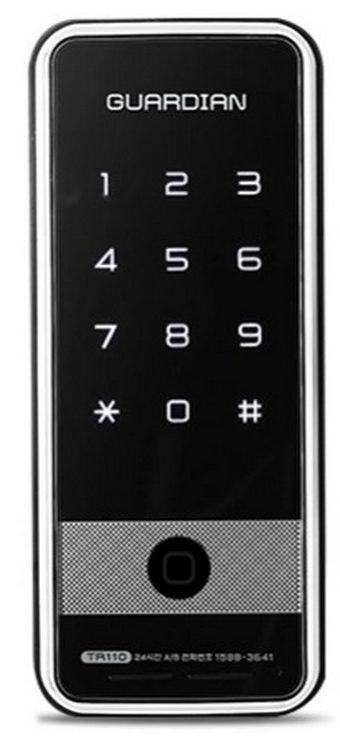
- Adequate cost;
- Quality assembly;
- Sufficient functionality;
- Good burglary resistance.
- Does not have acceptable moisture resistance.
2nd place: "Xiaomi Loock Intelligent Fingerprint Door"
votes 2
This device is characterized by high quality assembly and long service life. The model gained great popularity due to its increased resistance to burglary. The device has an electronic filling with artificial intelligence, and the case itself is made of durable materials. Opening is possible in four ways: a metal standard key, a Bluetooth connection, a fingerprint and a PIN code. The device has a fingerprint scanner and an attempt timer. The cost for retail chains is 15,500 rubles.

- Large set of additional options;
- Possibility of signaling in case of burglary;
- Ease of management;
- Several ways to open;
- Rugged housing.
- Somewhat overpriced.
1st Place: Nest x Yale Lock
votes 1
Such a device is distinguished by ease of operation and visually original design. The whole design is made at a decent level of quality, the front panel has a keypad for entering a password. It has support for control via mobile gadgets, working through a secure Wi-Fi channel using proprietary software. There is an auto-close function, set passwords can be set to temporary or permanent, an event log is kept, it is possible to synchronize with some Google applications. The recommended cost for retail chains is 22,000 rubles.

- Stylish design;
- Ability to integrate with the Google platform;
- Extended functional set;
- Excellent build quality;
- Automatic locking available.
- High price.
Electromagnetic Models
3rd place: "TANTOS TS-ML300"
votes 0
A fairly simple model, but which has found its wide consumer due to its high-quality assembly. The holding force with the help of a magnet is very high, it is equally suitable for both a room door and bulky gate leaves. Management can be carried out manually or remotely. It can be integrated into the security system together with an intercom. The device is resistant to temperature extremes (it also works at -40 degrees Celsius), has the proper moisture protection class. Saves electricity. The recommended cost for retail chains is 2700 rubles.

- Frost resistance;
- Possibility of integration with intercoms;
- Wide area of use;
- Small power consumption.
- Not found (for its segment).
2nd place: "AccordTec ML-295K"
votes 0
This electromagnetic device can be called universal, it has comfortable control and discreet design. The holding force of the magnet is very high and amounts to 300 kilograms. The case is made on the basis of moisture-proof technology. The lock supports the emergency release function, which is very important in fire situations. High-quality material was used in the production, which can withstand moisture, frost and wind. The recommended cost for retail chains is 2800 rubles.

- Powerful holding force;
- Control comfort;
- Availability of emergency unlocking;
- Frost resistance;
- Waterproof body.
- May consume excessive amounts of energy.
1st place: "AccordTec ML-350AL"
votes 0
This model is extremely powerful for its class, and its holding force is more than 350 kilograms. The design is enclosed in a durable steel case, which has an IP67 moisture protection category according to the European classification. The outer parts of the body are treated with polyester powder for corrosion protection. In addition to the instructions in Russian, the kit includes special fasteners, so there will be no issue with installation. The lock is suitable for all types of doors. It is characterized by special wear resistance and the presence of a mechanical compensation system. The recommended cost for retail chains is 3500 rubles.

- Can be used on any doors.
- There is a light indication;
- Service life is increased;
- The holding force is high;
- Minimalistic design style.
- Not detected.
Combined models
3rd place: "Igloohome Mortise"
votes 0
This model is distinguished by a high degree of protection and the presence of an instant unlock function. The design has a special panel through which it is possible to enter a PIN code. The device is equipped with a timer for false entry attempts (up to 5 times). Remarkable is the installation right in the housing of a loud sound alarm. The touch panel can be described as advanced, and the hidden lock cylinder will greatly complicate the procedure of mechanical hacking. The password can be entered both manually and using mobile devices. The recommended cost for retail chains is 36,000 rubles.

- Stylish design;
- Excellent build quality;
- Improved touch panel;
- Hidden larva for the key;
- An emergency release function is available.
- High price.
2nd place: "August Smart Lock Pro"
votes 0
The lock is easy to install and has a wear-resistant locking mechanism. The model will require a special design of the door leaf in order to fully realize reliable protection against burglary. Locking can be done mechanically (with a key), using a digital code and through a mobile gadget. WiFi remote control possible. A distinctive and interesting feature is the integration of the lock with the Internet service for booking hotel rooms “Air B’n’B”. The recommended cost for retail chains is 32,900 rubles.

- Possibility of remote unlocking;
- Three ways to control;
- Exclusive locking mechanism;
- Synchronization with the hotel Internet service.
- A special design of the door leaf is required.
1st place: "Samsung SHS-5050/H505"
votes 0
This lock is distinguished by high-quality execution, coupled with a wide range of functionality. The password can be set up to 12 characters long, and after setting it can be sent to a certain circle of people. The memory can store up to 100 previously created code combinations or images of RF cards. The device has a special sensor that monitors the status of the lock. Password guessing based on fingerprints on frequently used digits is not possible. A mechanical key, a digital password and an RFID card are used for control. The recommended cost for retail chains is 39,000 rubles.
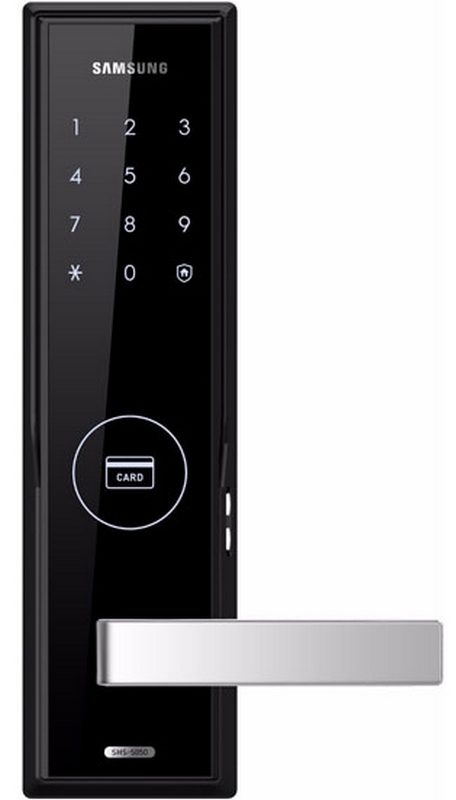
- Possibility of completely autonomous functioning;
- Open door sensor - available;
- Large amount of ROM;
- There is protection against code selection;
- It can be opened with a mechanical key.
- Too high price.
Instead of an epilogue
The analysis of the market of the devices under consideration found that electromagnetic locks are the best option in terms of quality and price. All other models, although multifunctional, are extremely expensive. By and large, their potential may simply not be in demand in Russian realities. At the same time, it is possible to note the development trend of these devices, which tends more and more towards remote control. Every year, systems of protection against hacking, both mechanical and electronic, become more and more perfect. At the same time, biometric technologies are gaining popularity, which means that a hotel guest, in principle, will never be able to lose his room key.
new entries
Categories
Useful
Popular Articles
-

Top ranking of the best and cheapest scooters up to 50cc in 2025
Views: 131649 -

Rating of the best soundproofing materials for an apartment in 2025
Views: 127688 -

Rating of cheap analogues of expensive medicines for flu and colds for 2025
Views: 124517 -

The best men's sneakers in 2025
Views: 124031 -

The Best Complex Vitamins in 2025
Views: 121938 -

Top ranking of the best smartwatches 2025 - price-quality ratio
Views: 114978 -

The best paint for gray hair - top rating 2025
Views: 113393 -

Ranking of the best wood paints for interior work in 2025
Views: 110318 -

Rating of the best spinning reels in 2025
Views: 105327 -

Ranking of the best sex dolls for men for 2025
Views: 104363 -

Ranking of the best action cameras from China in 2025
Views: 102214 -

The most effective calcium preparations for adults and children in 2025
Views: 102010

